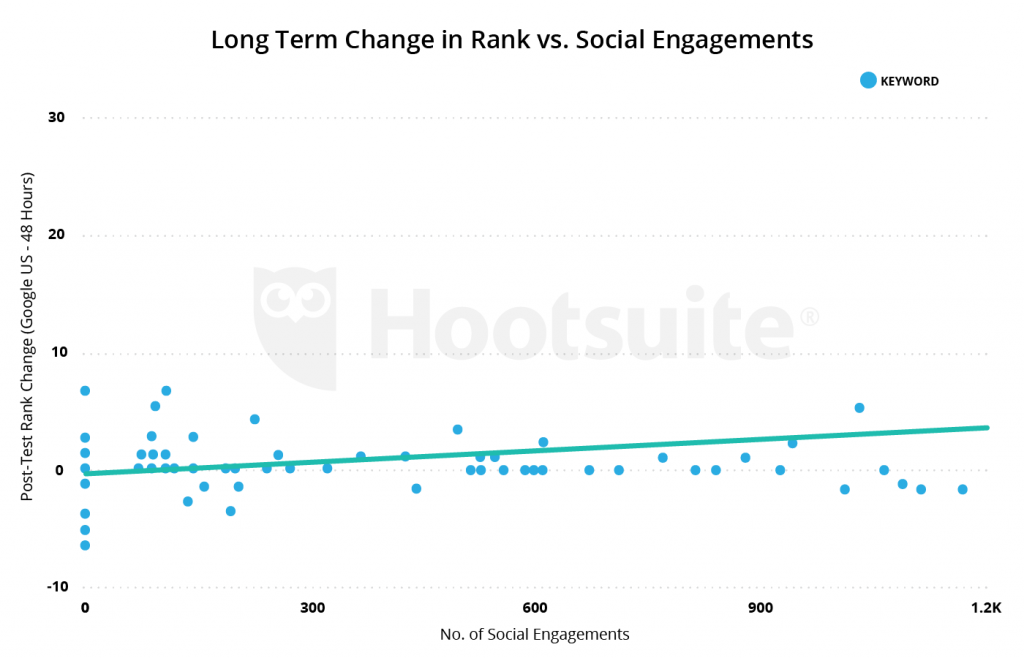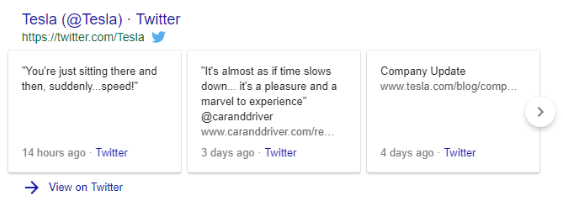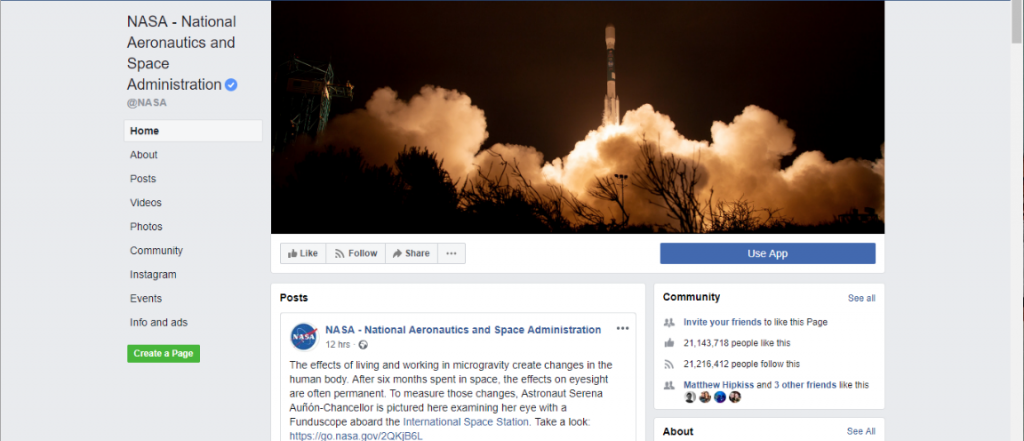SEO And Social Are The Dream Team eCommerce Needs 


You want explosive sales for your eCommerce business. That means you’re looking at every possible channel to get exposure and grow your sales.
Getting these results is definitely possible. Best of all, you can do it with marketing channels that you’re likely already using, including email, content marketing, PPC advertising and more.
However, in eCommerce, the dream team of SEO and social media are the big players in the game.
Here, we’ll look at how each informs the other. Best of all, you’ll find great tips on how you can get the results for yourself.
How Does Social Media Inform SEO?
For a long time, people assumed that social media had no effect on SEO.
Back in 2014, Google even came out and said that it can’t rely on social signals.
Or at least, it didn’t back then.
Fast forward to today and it seems like social may be a factor that Google takes into account. Just look at the rise in the number of social media pages achieving top results in Google rankings:

Figure 1 – https://blog.hootsuite.com/social-media-seo-experiment/
Note the big jump in mid-2015. It seems like Google may have changed its stance at this point and given social networks more prominence in its results.
This suggests that social signals may play a larger role than Google claims. In fact, a Searchmetrics report seems to prove it:

Figure 2 – https://optinmonster.com/social-media-and-seo/
This shows that sites with high Google rankings tend to have thousands of social interactions.
So, does that mean Google is lying about social not being a ranking factor?
Not necessarily. Google may not make social signals a direct part of its search engine algorithm. However, it appears that these signals can amplify the power of other signals that Google does pay attention to.
It all comes down to sharing.
When people share your content on social media, you get more traffic to your website. That’s a signal that Google pays attention to. If those visitors stay on the site for a decent amount of time, that’s another factor that plays in your favour.
These are signals that social media influences. However, they’re not direct signals from social media.
Still, this isn’t direct proof that social signals can improve your rankings. It’s just speculation that they may have a correlative effect. This means that social signals may influence the other signals that Google takes into account.
Hootsuite decided to take things further in a 2018 study. They wanted to see if Google’s claims that social isn’t a direct ranking factor were actually true.
To do that, they created Project Elephant.
Explaining Project Elephant
Project Elephant saw Hootsuite create 90 pieces of content that they split into three groups, each with 30 pieces:
- Control – These pieces received no marketing efforts, paid or organic, for either search or social.
- Group A – HootSuite published these pieces to Twitter and did nothing else with them.
- Group B – HootSuite published the pieces to Twitter and then gave each a $10 budget that allowed for two days of boosting.
If Google’s claims that social doesn’t affect search are true, there shouldn’t be any difference between the average rankings that each post gains.
The pieces in the control group should achieve similar results to the promoted pieces in Group B.
That’s not what happened:

Figure 3 – https://blog.hootsuite.com/social-media-seo-experiment/
As you can see, both Group A and Group B enjoyed more search visibility than the control group. Importantly, the content in both groups leveraged a social media strategy for promotion.
However, it’s the difference between Group A and Group B that are most interesting. Group B included the boosted posts and achieved 10% higher search visibility than Group A.
This suggests that the extra attention that comes from boosting has a positive effect on search visibility. It also combines with the 12% increase that posting a piece on social media has in the first place.

Figure 4 – https://blog.hootsuite.com/social-media-seo-experiment/
This appears to lead to a long-term ranking improvement. As you can see from the above graph, an increase in social signals correlates with an improvement in rankings.
It’s important to note that Project Elephant doesn’t prove that social signals have a direct effect on ranking. We still have to take Google’s word that it doesn’t for the time being.
However, it does establish that there’s a correlation. Strong social performance seems to lead to higher rankings.
Again, this may come back to the ranking signals that social media affects indirectly. Higher visibility on social platforms can give a boost to such signals, which appears to affect ranking.
So, social and SEO aren’t as separate as Google might want you to believe. In fact, all of the data suggests that you can turn social and SEO into a dream team that leads to better rankings.
Why is That Important in eCommerce?
That covers why you need a social strategy to help with your SEO efforts.
However, there are plenty of other reasons why social plays an important role for eCommerce businesses.
Consider these stats:
- 74% of people check social media to help them make purchasing decisions.
- 43% of people claim they’re more likely to buy a product if they learned about it on social media.
- 31% of people say they use social media to check out products they’ve heard about elsewhere.
The simple fact is that social platforms can have a huge influence on your sales. Your customers use them to influence their decisions. If you’re not actively engaging on those platforms, you’re not doing all you can to get their business.
Combine that with the influence that social signals seem to have on search rankings and you see the importance of social. You need to combine your strategies to create a dream team that gets great results on both platforms.
Here’s how you do it.
1. Don’t Spam Social Media Feeds
This is the temptation that a lot of business owners face. As soon as they discover the power of social, they start sharing everything.
You end up spamming people’s feeds with every product and piece of content that you have.
That’s a bad tactic.
You end up losing so much time to posting constant links that you lose focus on other business objectives. Worse yet, you’re engaging in a tactic that doesn’t work. If you’re an overbearing presence on someone’s social media feed, they’re going to tune you out.
You might end up driving customers away instead of encouraging them to check you out.
Quality still takes precedence over quantity when combining your social and SEO strategies. One great piece posted to a social media platform will have much more of an effect than spamming 100s of product pages on your site.
Remember the correlative effect theorised above. You’re not building links when you spam content on social media. In fact, most social media platforms attach a “nofollow” tag to these links. That means you’re getting no boost at all from them.
However, you might end up with higher amounts of people bouncing off your website after clicking on a spammy link.
That’s something that Google pays attention to.
You don’t have to post constantly to maintain a social presence either. It’s more about maintaining a regular schedule through which you share useful content. You’re looking to build a consistent presence, rather than an overbearing one.
This helps your audience to understand what they can expect from you. You’re not going to spam their feeds. You’re just going to share useful content on a regular basis. That consistency leads to trust, which is a crucial part of every buying process.
This trust leads to more positive interactions. As a result, you boost the search signals that social platforms influence.
2. Remember That Social Profiles Rank Too
Remember this graph from earlier:

This shows that social profiles have a higher presence in rankings in 2018 than ever before.
A quick search for a major brand, like Tesla, often shows something like this:

That’s the second result for a search for the Tesla brand name. Not only does Google rank the Twitter account but it also highlights some its most recent tweets.
The takeaway from this is that you need an active social media account. Google will rank it alongside your main website.
Examples of good activity include:
- Posting useful content onto your social media platforms
- Engaging with followers
- Sharing content from key influencers in your industry
Don’t create a social media account and do nothing with it. The more active you are, the more likely the account is to rank. That means higher visibility and more sales.
3. Optimise Your Profiles and Website
An active profile is the first step. There are plenty of things that you can do to optimise the profile as well.
Most social media platforms allow you to create a bio. Use this to tell people about the basics of your company and insert a useful link. This could be to your main website or to a service that you offer.
It’s also important to maintain consistency across all of your profiles. Use professional and attractive images that people will also see when they visit your website.
NASA offers a great example of this. Check out their Facebook profile:

Now, let’s take a look at their Twitter:

They’re maintaining consistency across all platforms. They’re using the same imagery and sharing similar stories across their social media.
All of this creates credibility. People are more likely to trust your profiles, which makes them more likely to share and interact with them. This leads to boosts in the indirect ranking signals mentioned earlier.
After that, optimise your website and website architecture for social sharing too. Every blog post and product page should come with options to share and like the page for a variety of social networks.
You’re creating a cycle. Someone sees something interesting on your website and shares it on social media. Someone on social media sees that information and heads to your website. They may then also share the content, which keeps the cycle going.
All of the while, you’re indirectly influencing the ranking signals that Google pays attention to. More sharing means higher on-site engagement. That leads to better rankings and, ultimately, more sales.
4. Consider Paid Promotion
Project Elephant shows that content that receives paid promotion has a massive effect on search rankings. In fact, it almost doubles the performance of content that’s simply posted on social media and left alone.
The simple conclusion is that paid social promotion has an effect on your search rankings.
There are several ways to take advantage of this:
- Use Facebook Advertising to promote your most attractive products. Target these adverts using Facebook’s Lookalike Audience tool. This allows you to build a profile of your ideal audience from your previous sales data. This targeting means people are less likely to bounce from your website upon clicking. That higher engagement sends a great signal to Google.
- Boost interesting and useful content. That’s what worked well in Project Elephant. Again, the people who saw the post clicked on it and read the piece. The boosted post itself didn’t influence search rankings. However, it’s likely that the on-page engagement that the boost created did.
Taking the next steps
When all channels are running at full speed, your eCommerce website is in the best position for serious growth. Imagine all the sales come holiday season or happy customers coming back for more.
However, it’s not just SEO and social media that influence each other. Every single digital channel you invest in can and should work in sync to generate real revenue results.
That’s why our latest guide is just for you. Gathering insights from marketers in every industry, we’ve compiled The Digital Marketing Game Plan.
This eBook covers the formula for revenue shifting results with digital marketing. Proven insights, templates and techniques. All for you. All for free. Click below to download today!









